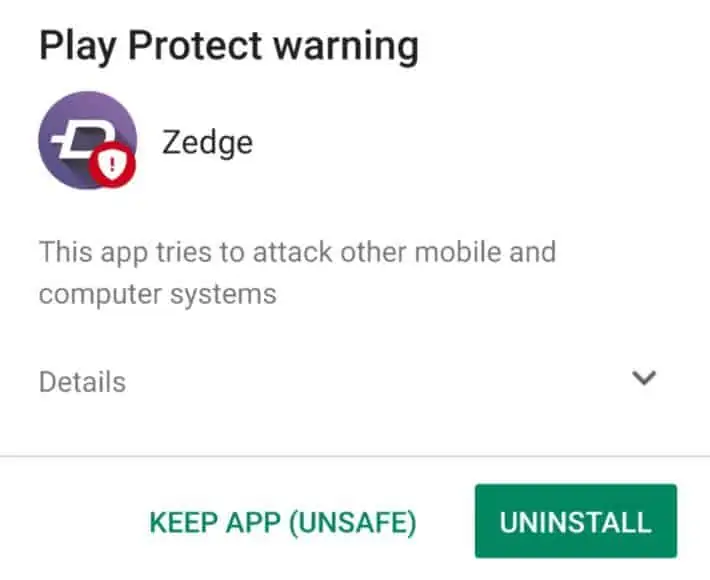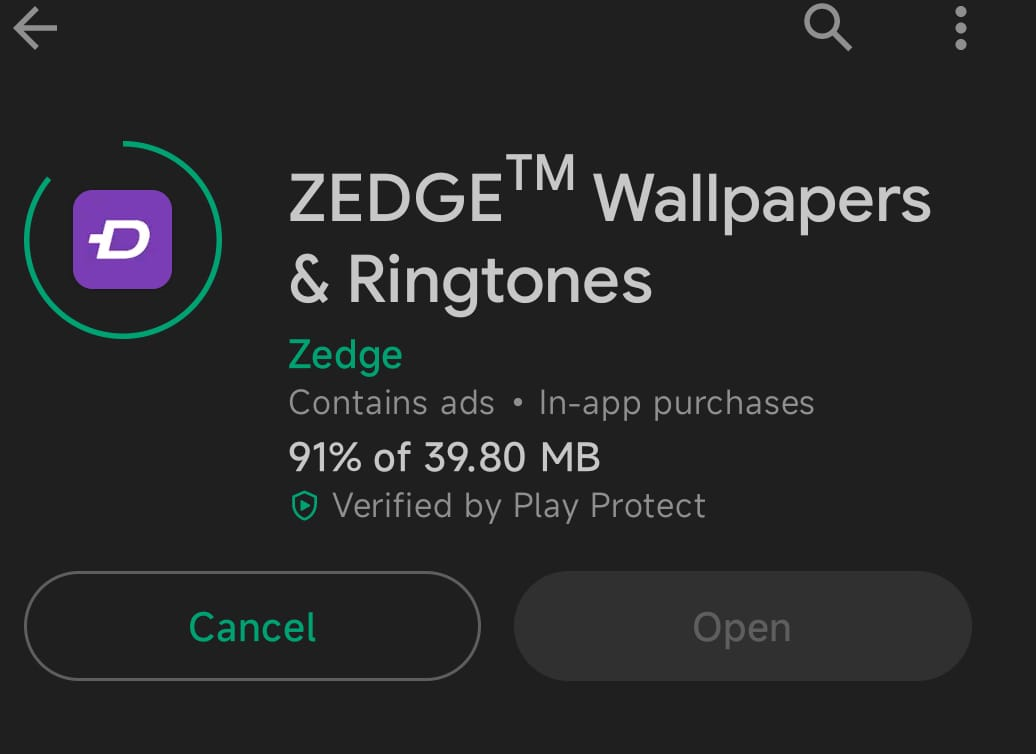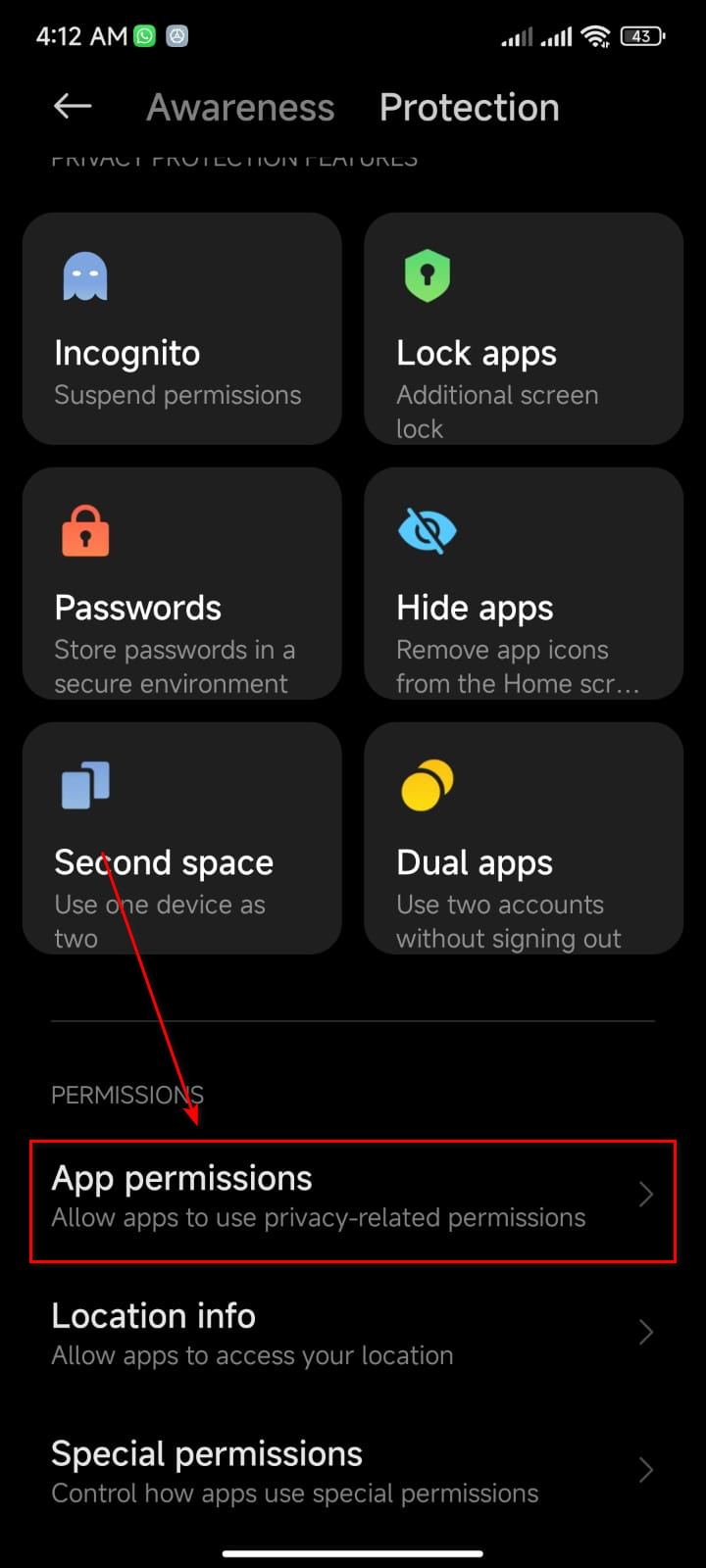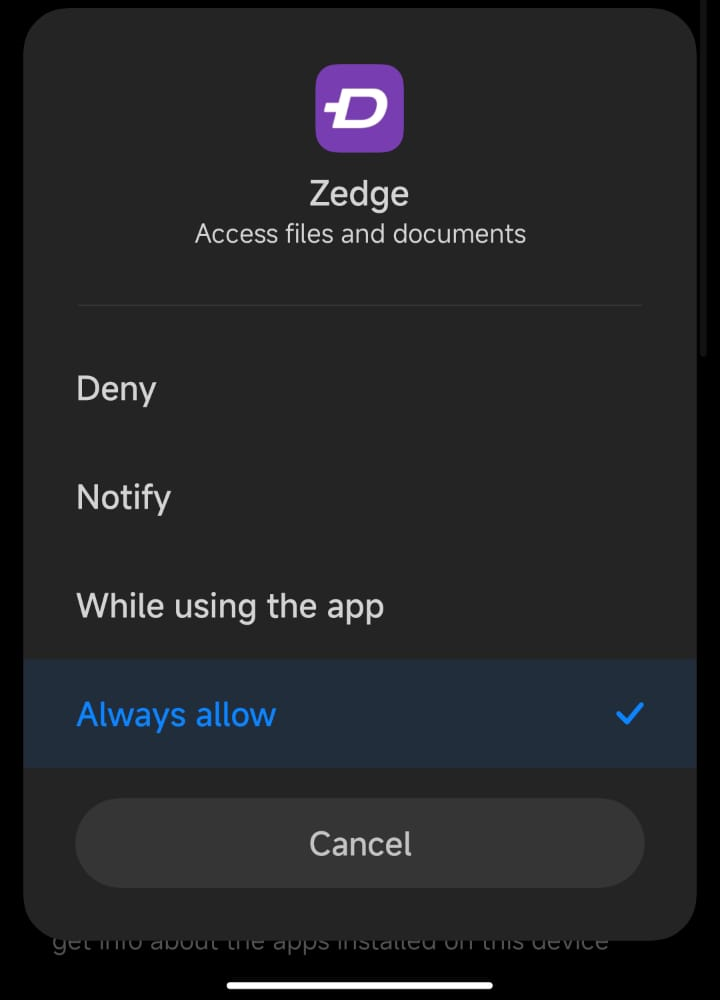Zedge may be harmful; Why it occurs and How to Fix it?
When encountering the error message ‘Zedge may be harmful’ in Google Play Store, it’s important to address the underlying security concerns. This error typically arises when the device’s security settings raise alerts regarding potential risks associated with the Zedge app. While Zedge is a popular app for customizing wallpapers, ringtones, and notifications, certain security protocols may trigger this warning.

In this guide, we will explore the causes of this error and provide effective solutions to troubleshoot it.
What causes ‘Zedge may be harmful’ error?
There are several factors that can trigger the “Zedge may be harmful” error on your device. We mentioned most common causes below:
- Security scans and settings: Modern devices are equipped with robust security measures that scan apps for potential risks. If these security scans or settings detect any suspicious behavior or potential threats associated with the Zedge app, they may display the “Zedge may be harmful” error.
- App permissions: Zedge requires certain permissions to function properly, such as accessing storage, contacts, or device information. If you have denied these necessary permissions or if they are not properly configured, it can trigger the error message.
- Outdated version: Using an outdated version of the Zedge app can cause compatibility issues with your device’s security systems, leading to the “Zedge may be harmful” warning.
How to resolve this problem?
Now that we understand the causes of the “Zedge may be harmful” error, let’s explore the solutions to troubleshoot it. We have prioritized the solutions based on their effectiveness and ease of implementation:
1. Check Security Settings
The first step is to review your device’s security settings to ensure they are not unnecessarily flagging the Zedge app. Follow these steps:
- Open the Settings app on your device.
- Navigate to the Security or Privacy section (may vary depending on your device).
- Look for options related to app security or scanning.
- Disable any settings that might be blocking Zedge unnecessarily. However, exercise caution and only disable settings from trusted sources.
2. Update the Zedge App
Using an outdated version of the Zedge app can trigger compatibility issues with your device’s security scans. To update the app, follow these steps:
- Launch the app store on your device (Google Play Store for Android or App Store for iOS).
- Search for “Zedge” in the app store’s search bar.
- If an update is available, you will see an “Update” button next to the Zedge app. Tap on it to initiate the update process.

- Once the update is complete, relaunch the Zedge app and check if the error message persists.
3. Grant App Permissions
Ensuring that Zedge has the necessary permissions will help prevent security warnings. Here’s how to grant app permissions:
- Open the Settings app on your device.
- Navigate to the Apps or Application Manager section (may vary depending on your device).
- Locate and tap on the Zedge app.
- Select the “Permissions” option.

- Enable all the necessary permissions, such as storage, contacts, or device information.

- Restart the Zedge app and see if the error message is resolved.
4. Contact Zedge Support
If the above solutions don’t resolve the “Zedge may be harmful” error, it’s advisable to reach out to Zedge support for further assistance. They have a dedicated support team that can guide you through specific troubleshooting steps tailored to your device and situation.
Conclusion
The “Zedge may be harmful” error can be frustrating, but with the solutions provided in this troubleshooting guide, you should be able to address the issue effectively. Start by checking your security settings, updating the Zedge app, and granting necessary permissions. If the error persists, don’t hesitate to contact Zedge support for personalized assistance. By following these steps, you can enjoy the full functionality of the Zedge app without any security concerns.
 Reviewed by
Reviewed by 




